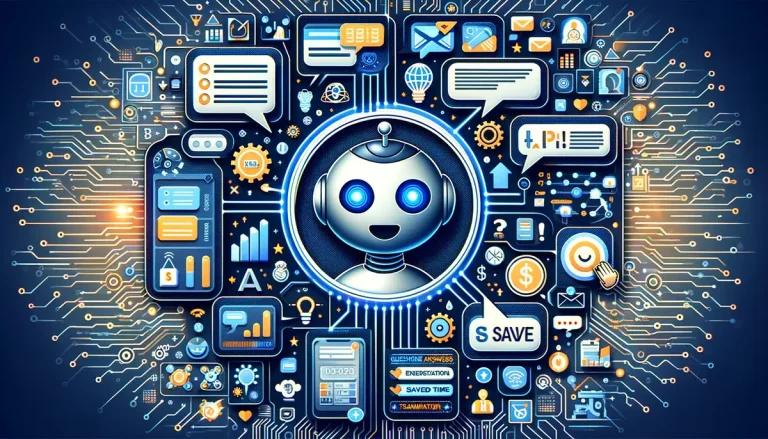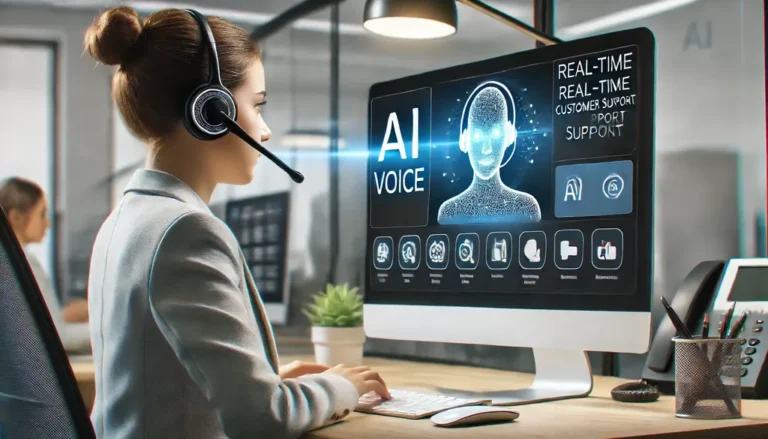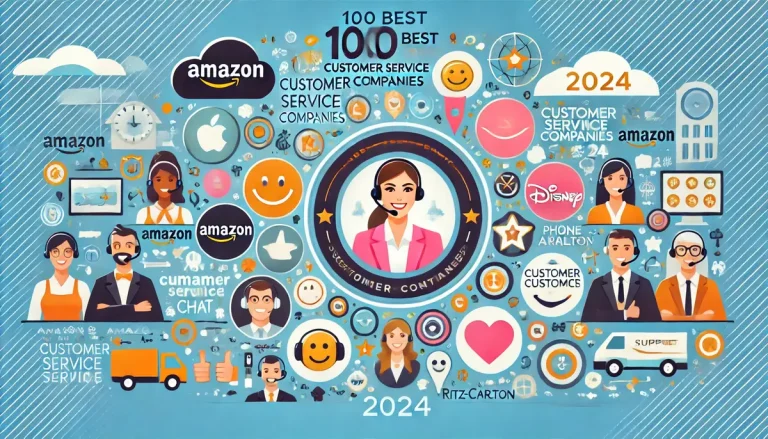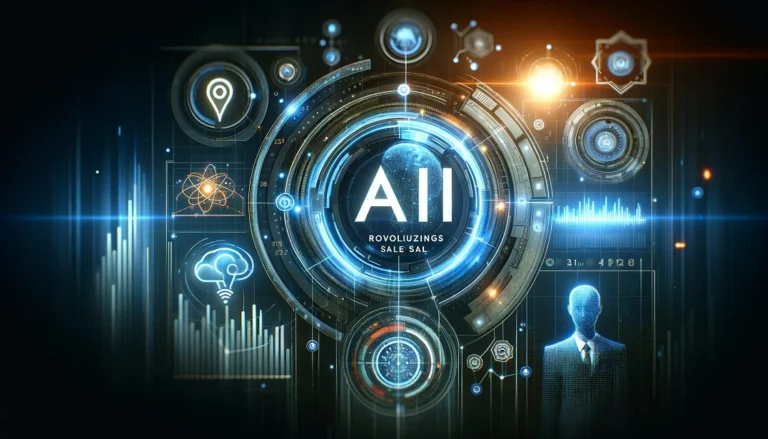Bringing in new leads is the lifeblood of any business looking to survive and grow. Let’s face it, the old ways often fall short. Today’s digital world is complex, noisy, and overflowing with information, making it tough to keep track of contacts, manage communications effectively, and spot real opportunities. This complexity calls for smarter, more efficient strategies.
This is where AI steps in, becoming a game-changer for marketing and sales, particularly in identifying new leads. For businesses drowning in prospect information and struggling to be heard online, AI offers real solutions.
This guide will give beginners a solid starting point to shift to lead generation with AI.
AI Lead Generation for Beginners
It’s about using artificial intelligence technologies to streamline and improve the whole process of finding potential customers, getting them interested, figuring out if they’re a good fit, and turning them into paying customers.
It means using AI tools and techniques throughout the entire lead journey, from capturing their initial interest and learning more about them to reaching out personally and nurturing the relationship.
This is quite different from traditional, often manual methods, such as cold calling, sending out generic email blasts, or relying on your gut feeling. AI lead generation relies on smart computer programs, deep data analysis, and automation to power the process.
But it’s not just about automating tasks. The real goal is smarter prospecting: identifying those high-quality leads with greater accuracy. AI also aims to make operations much more efficient and allows for truly personalized interactions, even when dealing with many prospects.
How AI Powers Smarter Lead Generation
AI needs a lot of data to work its magic. AI lead generation systems collect and process information from many different places, including:
- Behavioral Data: What people do online.
- Demographic and Firmographic Data: Basic facts like job title, location, industry, company size, and revenue.
- CRM and Historical Data: Information already stored in your customer relationship management system, such as past conversations, buying habits, support issues, and how previous deals went.
- Social Media Data: Public information from profiles, connections, comments, and shares.
- Third-Party Data: Information from outside sources, like platforms that track which companies are researching specific topics or business databases.
Essential AI Technologies Driving Lead Generation
Several key AI technologies are powering today’s lead generation strategies. Knowing about these can help you pick the right tools:
AI Chatbots
These automated helpers talk to website visitors or social media users in real-time, at any time of day.
They can instantly answer common questions, ask specific questions to determine if a lead is a good fit, gather contact details, support multiple languages, and pass promising leads to human sales representatives.
Examples include tools like Drift, BotPenguin, and Chatsimple.
Predictive Analytics Platforms
These systems specialize in analyzing vast amounts of data to identify prospects who are most likely to be ready to buy.
They use behavior patterns, company details, past interactions, and signs of active research to score leads, predict conversions, and help target campaigns more effectively.
Well-known tools include HubSpot’s AI features, 6sense, Demandbase, Salesforce Einstein, and Clari.
AI-Driven Personalization Engines
Making things personal is key to grabbing attention. AI analyzes individual prospect data, including their browsing history, viewed content, demographics, and past purchases, to tailor communications automatically on a large scale.
This means personalized email content and subject lines, website content that adapts to the visitor, relevant product suggestions, and ads tailored specifically to them.
Generative AI tools like Jasper and Copy.ai can write unique, relevant outreach messages from scratch, taking personalization far beyond simple mail merges.
This ability to create new content is a huge step forward in scaling truly personalized communication.
AI-Enhanced Automation Tools
Many tools automate specific lead generation tasks, boosted by AI smarts:
- Social Media Prospecting (especially LinkedIn): Tools help automatically find relevant prospects, send personalized connection requests, and track interactions. Examples: CoPilot AI, useArtemis, Meet Alfred.
- Email Marketing Automation: AI optimizes email campaigns by suggesting content, personalizing messages based on behavior, figuring out the best time to send emails, and automating follow-up sequences. Examples: SmartLead, Mailchimp, ActiveCampaign.
- Data Enrichment and CRM Integration: AI tools automatically identify missing contact details, verify information, and add additional data to lead profiles (such as company size or technologies used), all while syncing seamlessly with CRM systems. Examples: Seamless.AI, LeadIQ, ZoomInfo, Lusha, Apollo.
- Workflow Automation: Tools connect different apps and automate processes involving multiple steps, based on triggers and AI-driven rules. Example: Zapier.
The Benefits of Lead Generation with AI
Bringing AI into your lead generation process offers some attractive benefits for businesses aiming to grow and stay competitive:
More Efficiency and Time Back
AI automates many of the time-consuming, repetitive tasks associated with traditional lead generation, such as manual data entry, prospect research, lead scoring, email scheduling, and setting follow-up reminders.
This frees up your sales and marketing teams to spend their valuable time on more strategic work, like planning, building relationships with customers, and closing deals. AI can significantly accelerate the processing of leads.
Better Lead Quality and Accuracy
AI algorithms are great at digging through huge amounts of data to find leads who show the signs and behaviors strongly linked to becoming customers.
Predictive lead scoring and analyzing buying intent help weed out unqualified prospects, focusing on those who are genuinely interested and likely to make a purchase. This focus on quality can boost lead qualification rates.
AI also helps make data more accurate through automatic checks and by adding missing information.
Smarter Personalization and Engagement
AI enables businesses to go beyond generic messages and deliver highly personalized experiences, even when dealing with a large number of prospects.
By looking at individual preferences, behaviors, and past interactions, AI can tailor email content, website experiences, product suggestions, and ad targeting.
When communication feels relevant, engagement rates increase, response rates improve, and the overall customer experience improves.
Higher Conversion Rates and Better ROI
When you combine better quality leads, smart prioritization, and personalized engagement, you naturally see higher conversion rates all the way through the sales process.
By focusing efforts on the most promising leads and reducing wasted spending, such as outreach or ads targeting the wrong audience, AI helps lower the cost of acquiring each lead and improves the overall return on investment.
Some reports even suggest significantly shorter sales cycles and noticeable revenue increases.
Scalability
AI systems are designed to handle large amounts of data and manage multiple leads and interactions simultaneously, without requiring a proportional increase in staff. This ability to scale means businesses can grow their lead generation efforts efficiently as they expand.
Key Considerations and Challenges
While AI holds huge promise for lead generation, getting it right involves thinking through several important points and potential hurdles:
Data Quality and Integration
An AI system is only as good as the data it’s fed. Ensuring you have high-quality, accurate, complete, and relevant data is critical.
Bringing together data from various sources, such as your CRM, marketing tools, website analytics, and external databases, can be technically challenging and require significant resources.
Implementation Costs and Complexity
Implementing AI lead generation tools can involve a significant upfront cost. Besides the software itself, you may need to budget for integration, customization, and hiring individuals with specialized technical skills to manage the systems.
This complexity can be a roadblock, especially for smaller businesses or those without dedicated IT or data science teams, potentially creating a gap between early adopters and others.
Data Privacy and Ethical Use
This is the most critical area to get right.
- Compliance: You must strictly adhere to data privacy rules, including the GDPR (General Data Protection Regulation) and the CCPA (California Consumer Privacy Act). Failing to do so can result in substantial fines and legal consequences.
- Consent: Businesses must obtain clear, explicit permission from individuals before collecting and using their data for AI-driven lead generation. Avoid vague language or pre-checked boxes.
- Transparency: Being open about how AI systems gather data, make predictions (such as lead scores), and automate interactions is crucial to building trust. If people don’t understand what’s happening, they might become suspicious.
- Algorithmic Bias: AI models can inadvertently learn and replicate biases present in historical data. This could lead to unfair or discriminatory results in lead scoring or targeting. Regular checks, diverse data sets, and fairness-focused techniques are needed to reduce this risk.
- Security: Protecting the huge amounts of data AI systems handle is vital. Strong cybersecurity measures are needed to prevent data breaches and unauthorized access.
Balancing Automation and Human Touch
While AI is great for efficiency and scale, relying on it too much can lead to impersonal, robotic interactions that turn prospects off. AI often struggles with empathy, subtlety, and complex relationship-building, which humans excel at.
Finding the right balance is crucial. Often, the best approach is a mix: use AI for data analysis, automating tasks, and initial contact, but keep humans involved for building deeper relationships, handling tricky negotiations, and showing genuine empathy.
Integration Challenges
Ensuring new AI tools work smoothly with your existing technology (CRM, marketing automation, analytics) is vital for efficient operations and data flow, but it can be technically tricky.
A Practical Roadmap to AI Lead Generation
Jumping into AI lead generation requires a strategic plan. Here’s a practical roadmap for beginners:
Define Clear Goals and KPIs
Start by setting specific, measurable goals. You can improve lead quality, boost the conversion rate from marketing leads to sales leads, respond to leads faster, or make your outreach more personal.
Assess Needs and Choose Appropriate Tools
Examine your current lead generation process closely to identify areas for improvement. Research and pick AI tools that directly address your goals and needs. Consider your team size, technical skills, target audience, and budget.
Ensure Data Readiness and Integration
Take stock of the customer and prospect data you already have. Create a plan to consolidate data as needed and maintain its integrity over time. Crucially, figure out how your chosen AI tools will connect with your existing tech, especially your CRM and marketing automation systems, so data can flow smoothly.
Implement Incrementally – Test, Learn, Optimize
Don’t try to change everything at once. Roll out AI tools step by step, starting with those pilot projects. Set up clear ways to measure performance against your initial goals.
Keep a close eye on the results, gather feedback, identify what’s working and what isn’t, and use those lessons to fine-tune the AI, adjust your strategies, and enhance the process.
Empower Your Team
New technology only works if people know how to use it. Provide thorough training for your marketing and sales teams on the new AI tools and how to understand the insights they provide. Encourage collaboration among different departments, such as marketing, sales, IT, and data science, to ensure everyone is on the same page.
Conclusion
AI is fundamentally changing how lead generation works. By using sophisticated data analysis, predictive insights, smart automation, and scalable personalization, AI gives businesses a powerful way to move beyond the limits of older methods. It enables a shift from casting a wide, often inefficient, net to a more targeted, value-focused approach centered on identifying and engaging the most promising prospects.
For businesses just starting to explore AI in 2025, the main message is clear: AI lead generation is becoming more accessible and strategically essential.
Starting small, setting clear goals, selecting the right tools, and focusing on continuous learning and improvement offer a practical approach. AI is a powerful assistant that can significantly boost lead generation efforts and drive lasting business growth.
FAQs
What is AI lead generation?
AI lead generation refers to the use of artificial intelligence technologies to automate and enhance the process of finding, attracting, evaluating, and converting potential customers. It uses data analysis, machine learning, and automation to make the process smarter and more efficient than old-school methods.
How does AI find better leads?
AI finds better leads mainly through smart data analysis and predictive lead scoring. It examines vast amounts of data, including behavior, demographics, and past interactions, to identify patterns associated with successful sales in the past. Based on these patterns, AI predicts which new leads are most likely to buy, helping teams focus on the prospects with the highest potential.
Is AI lead generation expensive to implement?
Getting started with AI tools can involve upfront costs, especially for more advanced systems. However, there are many options available, including features built into existing CRM or marketing platforms. The potential benefits often mean the investment pays off over time.
What are the biggest risks of using AI for leads?
The main risks involve data privacy, ethics, and data quality. Mishandling personal data can lead to big fines and hurt your reputation. It is crucial to follow privacy rules, such as the GDPR, obtain proper consent, and keep data secure.
Can AI completely replace my sales team?
No, right now AI is best seen as a powerful tool to help sales teams, not replace them entirely. While AI is great at automating tasks, analyzing data, and scaling outreach, it generally lacks the empathy, complex negotiation skills, and deep relationship-building abilities that humans have.

![The Ultimate Guide to Lead Generation with AI [2025]](https://biglysales.com/wp-content/uploads/2023/09/The-Ultimate-Guide-to-Lead-Generation-with-AI-2025.webp)






